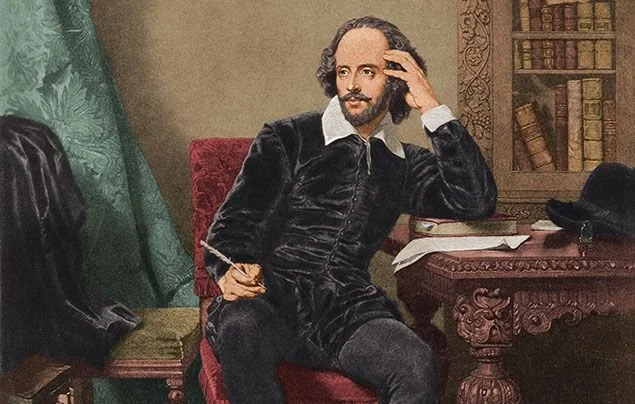Exploring Theatre Hot Takes: Shakespeare is Overrated
by Chris Peterson
Theatre people always have opinions and sometimes those opinions come in hot. Recently, I put out a call on social media asking for your boldest, spiciest theatre takes, and the responses did not disappoint. From thought-provoking critiques to eyebrow-raising declarations, you gave me plenty to chew on.
So here’s what we’re going to do: I’ll be exploring as many of these submissions as I can in this column series. Some I may agree with, others I may not, but that’s the fun of it. Theatre thrives on conversation, and even the most out-there hot take can lead to surprising insights and fascinating discussions.
Think of this as an open forum, where no opinion is too bold to examine. Ready to dive in? Click on the “Exploring Theatre Hot Takes” tag at the bottom to keep up with every installment.
Kendra Robinson left the following comment which intrigued me.
“Shakespeare is overrated. Don't get me wrong, I love Shakespeare's shows, but seeing his work as the gold standard is highly problematic. His shows are frequently racist, sexist, and offer minimal opportunities for any actors who aren't able-bodied white men.
And gender-blind multi-racial casting doesn't fix that. So when theatre institutions hold him up as this perfect example, and place such heavy emphasis on learning to perform his works, they're likely to be super harmful to many of their female and BIPOC students as a result.”
I’ve seen a lot of people lately saying that Shakespeare is overrated, and it’s a conversation worth taking seriously.
The idea is that yes, his plays are beautifully written and historically important, but the way we treat them as the ultimate example of great theatre is where things get messy. His work was born out of a time that excluded most people from participating, and that shows. The sexism, the racism, the classism—they’re not small details. They’re part of the structure. And even though modern casting and reimagined stagings try to make the plays more inclusive, those choices don’t always fix the deeper issues.
I don’t think that means Shakespeare should be tossed aside. But I do think we need to take a closer look at how we teach, stage, and talk about him. The problem isn’t the work itself so much as the way we’ve turned it into a form of worship.
For generations, we’ve treated Shakespeare like the north star of theatre. If you could perform him, you were a “real” actor. If your school taught him, your program had legitimacy. If your company staged him, your season had credibility. Somewhere in there, reverence turned into rigidity, and that’s when even great art can start to feel limiting.
The danger comes when people assume performing Shakespeare automatically equals artistic excellence. When theatre institutions or departments make him the centerpiece of their identity, they might not realize the message they’re sending.
For some students, especially women, students of color, or actors with disabilities, that focus can feel alienating. They might love the poetry of the work but still feel unseen in how it’s taught or cast. The issue isn’t that the plays themselves forbid inclusivity. It’s that our industry still tends to measure skill and seriousness through a very old, very narrow lens.
That said, I’ll never deny the genius in what Shakespeare created. His understanding of language, rhythm, and human behavior changed storytelling forever. His plays are still being performed for a reason. But influence doesn’t have to mean dominance. We can acknowledge that his writing shaped the art form without insisting that everyone else build their careers on the same foundation.
What I’d love to see more of is balance. Teach Shakespeare next to Suzan-Lori Parks, August Wilson, Lynn Nottage, and Tarell Alvin McCraney. Let students experience the full range of what theatre can be. Give them stories that sound like the world they actually live in.
When Shakespeare becomes one voice among many instead of the only one that counts, something important happens. We stop training actors to imitate the past and start helping them interpret the present.
The solution isn’t to erase Shakespeare or shame anyone who loves his work. It’s to stop treating him as a moral compass for what good theatre should be. His plays can still teach us a lot about language, emotion, and human nature, but so can hundreds of others that have been written since. Maybe the goal isn’t to bring him down, but to bring everyone else up.
Maybe the truth is that Shakespeare isn’t overrated—he’s just overexposed. The plays aren’t the problem. The pedestal is.
